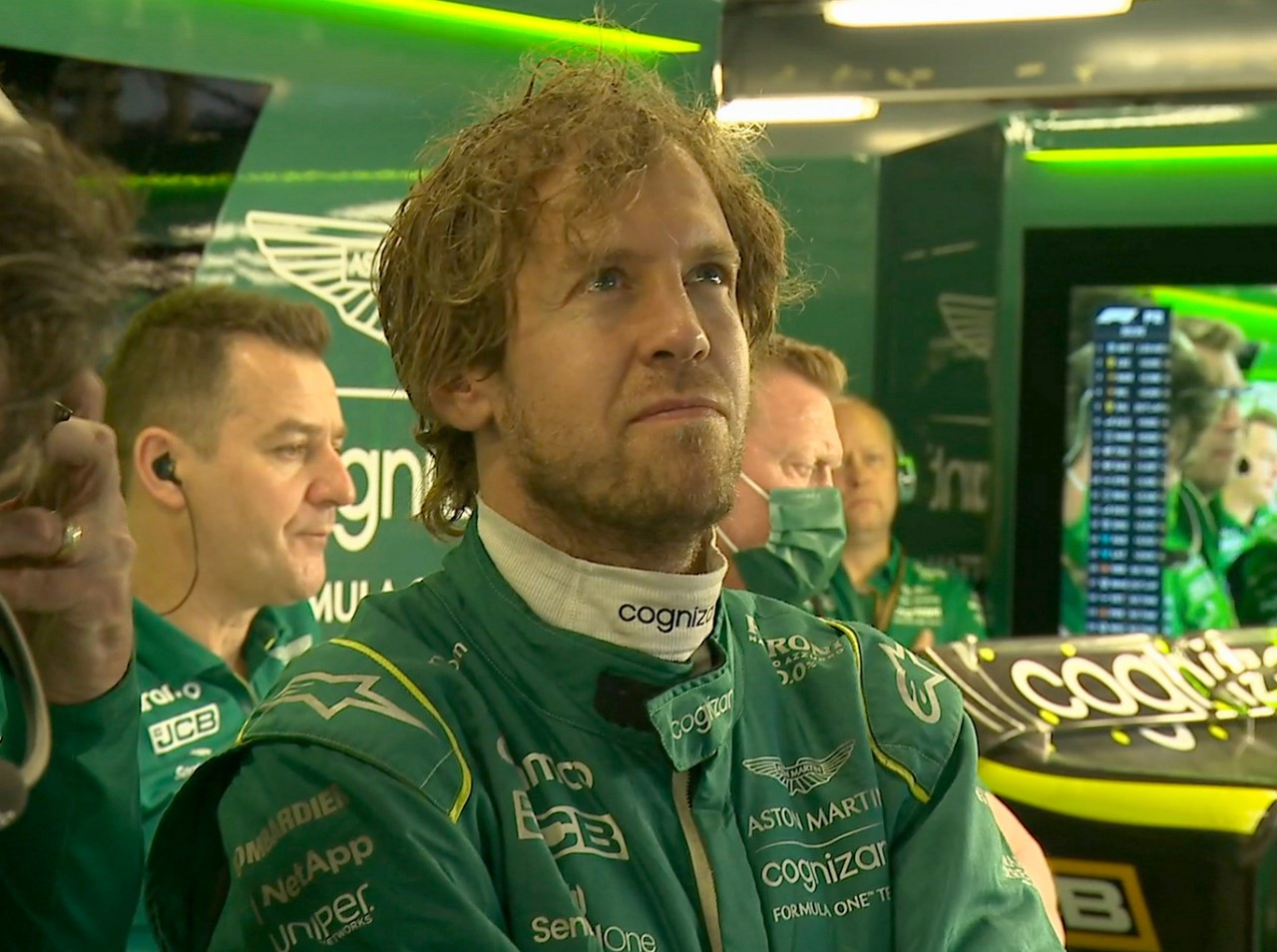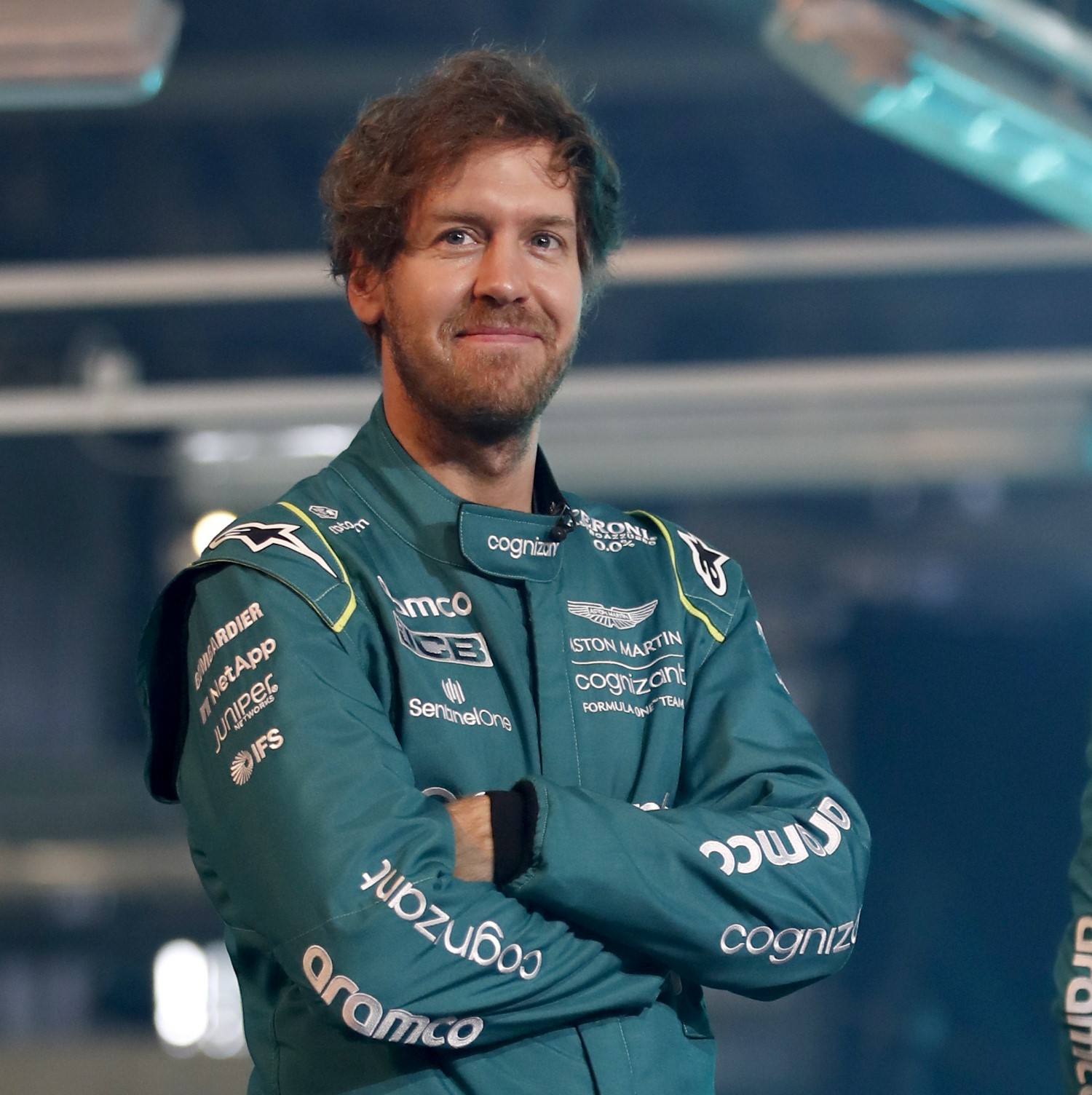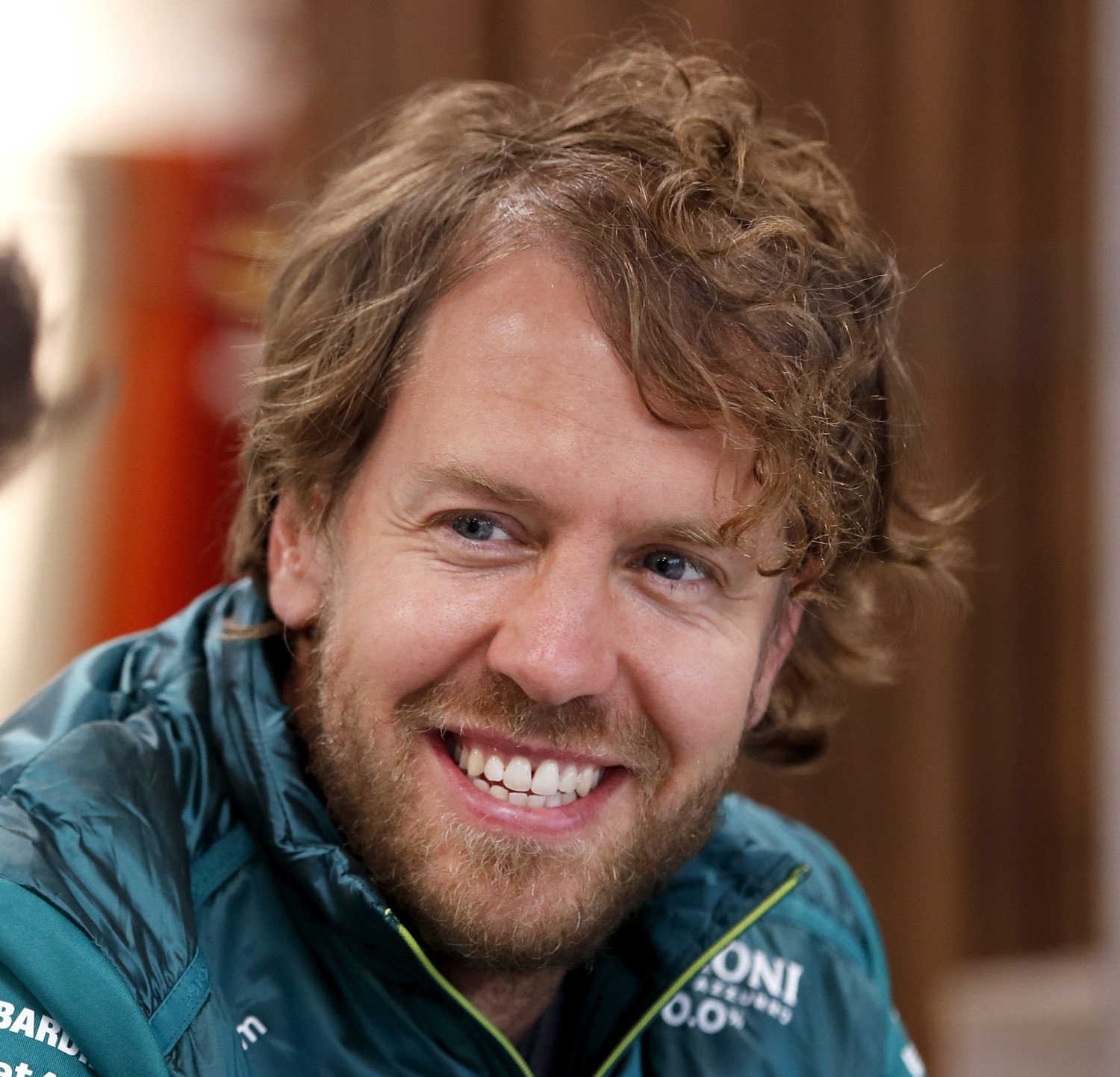F1: “No one will remember me” – Vettel
Sebastian Vettel talks failure, toughest rivals and living anything but a normal life. Raw, unfiltered and honest, we ask the Aston Martin F1 driver the questions you want answered in Aston Martin’s new series: UNDERCUT.
Never afraid to speak his mind, Sebastian Vettel talks candidly before the curtain falls on his glittering career as a Formula One driver and reveals why, despite being one of the sport’s all-time greats, he won’t be remembered…
“I once heard someone say, ‘You will only be remembered until the last person who remembers you dies.’
“Let me put it this way: the UK has a new king, but he’s not the first King Charles – there were two more before him. Do you remember them? Probably not. There’s a limit.
“There will probably come a point when no one will remember me. Nothing lasts forever.”
Being a Formula One driver is an accelerated way of living. I think that’s true for most professional sportspeople.
So you haven’t thought about how people will remember you?
People can decide if they want to remember me, but I wouldn’t be offended if they don’t. It’s not important to me how I’m remembered. I always try to succeed – sometimes I don’t succeed – but, above all else, I always try to treat people with respect and be nice. If that’s what people remember about me, then that will make me happy.
What have you learned from your time in Formula One?
There are a lot of lessons in life and it’s up to you whether you choose to learn from them. Being a Formula One driver is an accelerated way of living. I think that’s true for most professional sportspeople. You have everything that happens in normal life, but it’s more compressed in terms of time.
I had to mature earlier than my friends at school because I was taking my racing career very seriously and dealing with a lot of adults.

Do you feel like you missed out at all by not having a ‘normal life’?
I was still doing all the stupid and silly things teenagers do with their friends but, when you’re 19 years old, your world is different when you’re also spending a lot of time with people who are in their thirties, forties and fifties.
Hanging out with older people didn’t make life dull and boring – not at all. But I had to mature quickly. If you want to achieve something, you need to be committed – you need to be disciplined.
I still love the sport. I still love racing. The decision to retire was a tough one, but I’ve been thinking about it for a while.
Was it overwhelming?
I often feel like I’ve experienced so much in the last 15 years that I can’t take it all in – meeting so many people, going to so many different countries. It’s taught me a lot – time will tell just how much I was listening.
Have you fallen out of love with Formula One?
I still love the sport. I still love racing. The decision to retire was a tough one, but I’ve been thinking about it for a while. I know how much commitment this sport requires, and I feel like it’s a good time to do other things.
How do you reflect on your two years with Aston Martin F1?
They have been challenging because the car wasn’t as competitive as we hoped. This year, we wanted to make a significant improvement over last year. We failed. We’re currently where we finished last year.
I’m not pointing the finger and saying we did a bad job. I’m just being realistic. We had high hopes, but we fell short.
Would I be retiring if I had been very competitive over the last three or four years: winning races, fighting for championships?
Do you regret how things played out?
No, not at all. I don’t think it was a useless two years, even though the results and points we scored weren’t that useful or what we hoped for. I’ve loved working with the team – getting to know different people and different approaches.
These two years have been very challenging because I wasn’t familiar with running at the back of the field. It has been a new experience – tough at times – and I realized a lot.
What did you realize?
That you only see what’s happening around you. If you’re at the front, you only see what’s at the front. If you’re at the back, you only see what’s at the back – but you’re always looking to the front because you want to be there.
But when you’re at the front, you don’t look at the back because it doesn’t impact you and you don’t appreciate just how much work the teams at the back are also putting in. Just because you’re not scoring big results, doesn’t mean you’re not working as hard.
I’m very happy and proud to have worked alongside such a talented and dedicated group of people at Aston Martin F1. Even though it wasn’t a lot of fun in terms the results, it’s been a lot of fun working with everyone – helping the team on its journey and building for the future.

The podium in Baku last year must have been a lot of fun?
Definitely. It was a race where we were more competitive and when you’re more competitive these things can happen. We proved that we can pull off good races. There have been other races we executed really well, but we finished 10th – and nobody notices if you finish 10th.
I’m not sure Fernando’s taking any advice, but he doesn’t need it anyway. He’s been around for so long and seen so much – he’ll be fine.
If the car was more competitive, would you still be retiring at the end of this season?
I don’t know. Would I be retiring if I had been very competitive over the last three or four years: winning races, fighting for championships – maybe winning another one? I might have come to the same decision. Equally, I might not have. It’s impossible to say, but it has crossed my mind.
Finishing 10th doesn’t give me a buzz because I know how it feels to finish first. If you’ve never finished first, the first time you finish 10th you get a real buzz. But I’m happy that I don’t get a buzz from finishing 10th.
It would be worrying if you did…
You have to be true to yourself. I love winning. It sounds selfish and egotistical but winning is what drives me.
53 race wins. Four consecutive titles. Did winning ever get boring?
You do get used to it. But when you’re not winning anymore, you think about how good it would feel to win again. And when you do win again, it’s a big moment and it means more to you than the previous win because of the emptiness in between.
Many people with a proven track record of winning in Formula One have joined Aston Martin F1, people you’ve previously worked with, the likes of Dan Fallows and Eric Blandin. Do you think the team will achieve its ambitions?
Winning doesn’t guarantee you will win again, but it definitely helps. The people are in place, the new factory is being built, so it’s all coming together – but it will take time.
There was a huge chance with the regulation changes this year, but we fell into the same trap as many others did. Some teams maybe got a little lucky, designing a car around a ride height that would work.
Now we have these regulations until 2026, so the teams that had a good start will have a headstart over the teams that had a bad start, and the budget cap means you can’t just throw money and resources at the problem to catch up.
I want to say thank you to so many people for making my racing career, my life, what it is.
You’ve raced against so many great drivers, but who was the toughest – who made your life hardest?
Lewis [Hamilton], especially when I was at Ferrari. Lewis has always been right up there. Before that, it was probably Fernando [Alonso] when he was at Ferrari.
Fernando takes your seat at Aston Martin F1 next year? Any advice for him?
Fernando doesn’t need any advice. I’m not sure he’s taking any advice, but he doesn’t need it anyway. He’s been around for so long and seen so much – he’ll be fine.
Four Grands Prix, Seb. That’s all that’s left. A remarkable career. An incredible journey. Thank you.
You know, it’s funny, a lot of people say thank you to me, but I want to thank them more. If I did what I did and no one was watching – no people in the grandstands, no emotions from the outside – it wouldn’t mean a thing.
I want to say thank you to so many people for making my racing career, my life, what it is.
